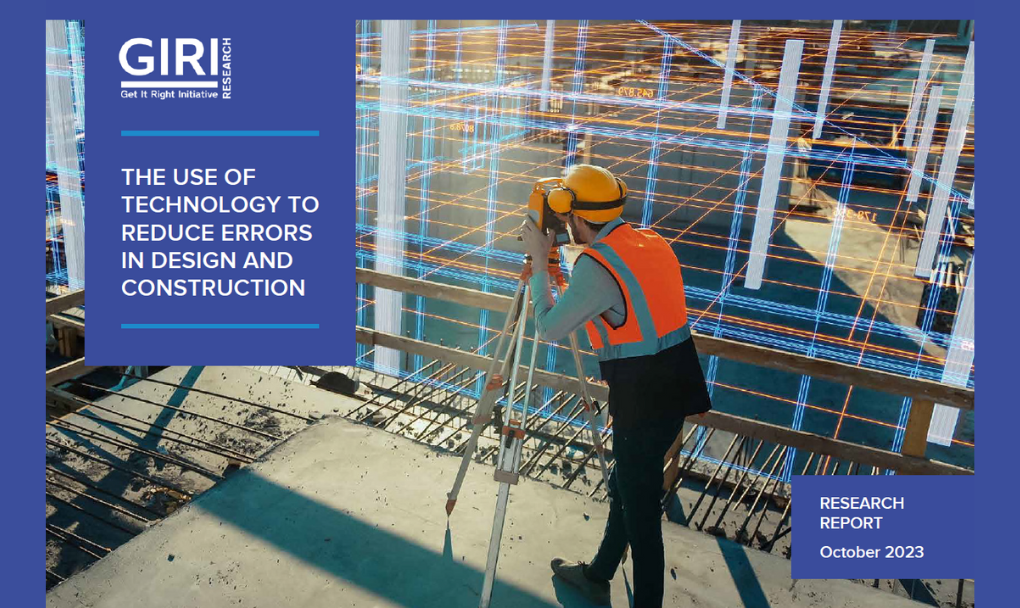A wealth of new technology has the potential to transform construction, but only if the industry embraces a culture of error avoidance, according to a new GIRI study.
Today, the Get It Right Initiative launches a new technology report in partnership with The C-Tech Club, a global community of 380 founders of construction-tech start-ups.
The report assesses a wealth of new tools being adopted by the construction industry, identifying those with the greatest potential to reduce the errors that are estimated to collectively cost the UK construction industry up to £25 billion per year in lost time, wasted materials and rework.
The report singles out 10 types of construction technologies which, if implemented properly, GIRI argues can directly mitigate the root causes of error identified in GIRI’s wider research. These include:
• ‘Checking’ technology
• Automated generation technology
• Workflow engines
• Visualisation software
• Collaboration and communication tools
• Computer vision
• IOT sensors
• Digital setting out
• Document management systems.
However, the report warns that these new tools won’t fix the problem of error reduction on their own. They need to go hand-in-hand with a wider cultural change across the industry to recognise the scale of the problem and embed error avoidance within construction programmes.
The report argues that current practices can lead to unclear and inconsistent methods of measuring and preventing error, with quality control overshadowed by health and safety legislation.
The research is based on in-depth interviews with contractors, consultants and technology providers. Full details on the technologies are available in the new report.
Cliff Smith, executive director at GIRI, said: “The potential for digital construction to revolutionise the way we work is increasingly recognised. In an industry which loses between £10-25 billion per year on avoidable errors, technology can help support the benefits of getting construction right first time.
“The wide-ranging benefits of removing errors from construction are more important now than ever when you look at productivity, cost performance and sustainability from reduced waste.
“However, we can only solve the problem if we recognise it. We need to see a shift in working culture across the industry to one which prioritises zero error in design and construction.
“Our new technology report demonstrates GIRI’s continued commitment to improving a culture in which error has become entrenched – and offers guidance for people across the industry on how we can utilise the breadth of tools available.”
John Priestland, Director at Priestland Consulting and founder of the C-Tech Club, which worked with GIRI on the report, added: “There are a number of technologies and tools that can help reduce error. The question is which ones to choose, how to link them together in a coherent way, and whether an organisation is able to use them effectively. The GIRI report is designed to help contractors and consultants answer these questions.”
GIRI is a group of construction industry experts, organisations and businesses dedicated to eliminating error and improving the construction industry. Through a series of training programmes, events and reports, GIRI works to change attitudes, harness leadership responsibilities and create a shift in industry culture to raise awareness of and tackle avoidable error. Its membership consists of consultants, contractors, regulators, educators, professional institutions and trade bodies, including Heathrow, Network Rail, HS2, Bennetts Associates, Arup, Costain, Galliford Try, Kier and Imperial College London.


